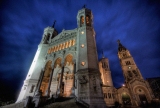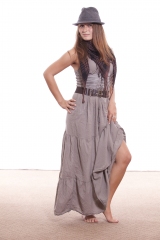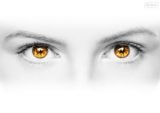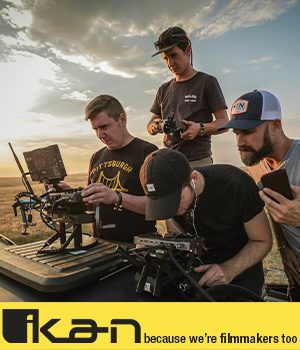- Forum
- General Discussion | Introductions | Off Topic Forum
- Photography General Discussion
- Formatting memory card in computer vs in camera?
Formatting memory card in computer vs in camera?
-
 Topic Author
Topic Author
- Wild Mitch
- Has the Hang of it
-
- Sony A900
- Followers: 13
- Posts: 73
-
Points:
168
Post #258752
-

- M-C Simard
- New Kid On The Block
-
- Nikon D 80
- Followers: 6
- Posts: 12
-
Points:
0
Post #258757
To answer your question formating is formating wherever it is.
-

- effron
- Newbie
- Followers: 1623
-
Points:
129640
Post #258758
www.digicamhelp.com/accessories/memory-c...tting-a-memory-card/
Why so serious?
-
 Topic Author
Topic Author
- Wild Mitch
- Has the Hang of it
-
- Sony A900
- Followers: 13
- Posts: 73
-
Points:
168
Post #258762
M-C Simard wrote: Personally, I avoid formating my cards, because if you lose yous photos saved on your computer, you will never be able to revover them. It you just erase them from your card, there are some softwares that can recover the data lost.
To answer your question formating is formating wherever it is.
You can only retrieve photos from the last photo shoot correct? So you can't access photos deleted from card 2 months ago and the card has been filed up a few times since right?
-

- Darrell
- Apprentice
-
- Nikon D7000 & D70
- Followers: 27
- Posts: 2059
-
Points:
0
Post #258765
You will not be judged as a photographer by the pictures you take, but by the pictures you show.
-

- M-C Simard
- New Kid On The Block
-
- Nikon D 80
- Followers: 6
- Posts: 12
-
Points:
0
Post #258776
Wild Mitch wrote:
M-C Simard wrote: Personally, I avoid formating my cards, because if you lose yous photos saved on your computer, you will never be able to revover them. It you just erase them from your card, there are some softwares that can recover the data lost.
To answer your question formating is formating wherever it is.
You can only retrieve photos from the last photo shoot correct? So you can't access photos deleted from card 2 months ago and the card has been filed up a few times since right?
I have been able to recover photos from a longer period than two months when one of my hard drives "died", two years ago, I did not got back all of my pictures, but at least a part of it. Obviously if you tries to recover photos from a year ago, more or less depending on how many photos you took since then, it won't necessary recover them.
-

- digitalpimp
- Snapobsessed
-
- Nikon D850 & D90 & D200
- Followers: 64
- Posts: 354
-
Points:
1833
Post #258814
-

- Scuba Mike
- Snapobsessed
-
- Nikon D610
- Followers: 100
- Posts: 416
-
Points:
3497
Post #258864
-

- fbicking
- Lone Wolf
-
- 5D Mark III and 2-7D's
- Followers: 3
- Posts: 117
-
Points:
0
-

- M-C Simard
- New Kid On The Block
-
- Nikon D 80
- Followers: 6
- Posts: 12
-
Points:
0
Post #258883
://.thedigitalstory/blog/2005/11/memory_cards_erase_d.html
://digital-photography-school/13-tips-for-using-and-caring-for-memory-cards
Post #258886
But the problem with that is when you shoot another photo after deleting the photos some of the previous data is still there, which can eventually lead to corrupting your current photos at one point. Either way the previous photos become unrecoverable due to the over write. Formatting the card makes it fresh for putting new data on by recreating the file system with new directories and such. The only way to keep any photos you have shot on you memory cards, is to store them and not use them again. And I know some people who actually do this. Or you get a nice removable hard drive, and back them up on it. Backup as always should be your first line of defense in saving photos, any all other irreplaceable data. Also having a fireproof safe rated for electronic media is advisable.M-C Simard wrote:
Wild Mitch wrote:
M-C Simard wrote: Personally, I avoid formating my cards, because if you lose yous photos saved on your computer, you will never be able to revover them. It you just erase them from your card, there are some softwares that can recover the data lost.
To answer your question formating is formating wherever it is.
You can only retrieve photos from the last photo shoot correct? So you can't access photos deleted from card 2 months ago and the card has been filed up a few times since right?
I have been able to recover photos from a longer period than two months when one of my hard drives "died", two years ago, I did not got back all of my pictures, but at least a part of it. Obviously if you tries to recover photos from a year ago, more or less depending on how many photos you took since then, it won't necessary recover them.
As far as why to Format in camera, it does exactly what your camera wants in creating directories. Also I never delete photos in the field. The reason being is that each photo is not always the same file size, this can be due to subject matter, and various other aspects of a photo you shot. One photo could have been very data heavy, or more complex and taken more space on the card, then the next was more basic with less data. So say you are running out of, or have run out of room on the card, and see another shot you really want, if you eliminate a small file and replace it with a very large file, you can screw them both up by jamming the larger image in. The difference in data sizes is also why when you look at how many images you can still shoot does not always change, this is because sometimes what you just shot did not require as much space on the card. So always carry a spare card when your remaining shots are getting low. It is no different than carrying an extra battery to me.
Post #258896
--
Bryan Linden
[email protected]
www.FinestraArt.com
www.facebook.com/FinestraArt
www.lindenphoto.net
[img]images/stories/finestraart_signature.jpg
-

- Conner
- The Lounger
-
- 5D Mark II
- Followers: 196
- Posts: 1050
-
Points:
6941
-

- Baydream
- Moderator
-
- Canoni/60D/70D/5DmkIII
- Followers: 388
- Posts: 11185
-
Points:
7280
Post #259029
I also always format in camera. The camera knows what it needs to properly process photos. Any remnants from prior photos 1) take up space, and 2) as Ernesto said, could corrupt new photos.
Use the computer if you are going to use the card to store non-photo data or as a jump drive to take them to a processor.
Shoot, learn and share. It will make you a better photographer.
fineartamerica.com/profiles/john-g-schickler.html?tab=artwork
-

- Henry Peach
- Apprentice
-
- I currently use a 5DII or Sony Nex-3 most of the time.
- Followers: 50
- Posts: 2925
-
Points:
16
Post #259142
As long as the files have not been written over it's usually possible to recover them whether they were deleted or the mem card formatted. I use Sandisk cards, and Sandisk was able to recommend free software that recovered all the photos on a card I accidentally formatted before I had copied the photos.
Why format instead of delete? Formatting identifies and isolates bad parts of the memory. Deleting does not, and if a file is written using a bad part the photo could be corrupted. Formatting occasionally is good memory maintenance.
- Forum
- General Discussion | Introductions | Off Topic Forum
- Photography General Discussion
- Formatting memory card in computer vs in camera?
Latest Reviews
The Olympus Pen E-P7 is an affordable micro four thirds mirrorless camera with 4K video capabilities, a 20.3MP sensor, and 121 focus points, making it a solid entry-level camera for beginners.
The Panasonic G9 II is a 25.2-megapixel micro four thirds camera with numerous features that make it punch out of its weight class, like 779 AF points, 5.8K video, and weather sealing.
The Fujifilm XT5 is a 40MP mirrorless camera capable of 6.2K video at 30p. With those specs, it’s an ideal choice for photographers needing a camera to pull double duty for imaging and video.
The Canon EOS R100 is an entry-level mirrorless camera introduced in 2023. But just because it’s an entry-level camera doesn’t mean it’s a bare-bones camera. Find out why in this review!
Forum Top Posters
-
1Scotty 7 posts
-
2Ruby Grace 7 posts
-
3TCav 5 posts
-
4Street Shark 4 posts
-
5CharleyL 4 posts
-
6Roger Lang 3 posts
-
7Nefarious 3 posts
-
8ShutterPal 3 posts
-
9Screamin Scott 2 posts
-
10Sassy Girl 2 posts
Latest Articles
The Olympus Pen E-P7 is an affordable micro four thirds mirrorless camera with 4K video capabilities, a 20.3MP sensor, and 121 focus points, making it a solid entry-level camera for beginners.
Starting a photography business is one thing; sustaining your business over a long period of time is another. Use the tips in this professional photography guide to build something with longevity!
The Panasonic G9 II is a 25.2-megapixel micro four thirds camera with numerous features that make it punch out of its weight class, like 779 AF points, 5.8K video, and weather sealing.
Cinematic photography is an interesting genre that combines photographic and videographic skills along with effective storytelling techniques. The result? Highly impactful images!
Newborn photography requires skill, the right gear, and a lot of patience. This beginner’s guide discusses critical topics that will help you be more prepared for before, during, and after the shoot.
To fill the frame means to expand the footprint of the subject in your shot. Get in close, zoom in, crop the image, or use other techniques to bring the subject to the forefront.
With these simple yet effective beginner photography tips, you can avoid some of the common mistakes beginners make and get improved results with your images.
Urban photography is a genre showcasing features in urban settings. You can photograph people, architecture, mass transit, and many other subjects. Learn how to do so in this guide!
















